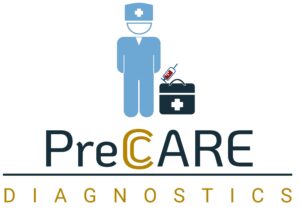Gastroesophageal Reflux Disease (GERD) is a common digestive condition where stomach acid repeatedly backs up into the esophagus, causing discomfort and potential damage to the lining of the esophagus.
Although many experience acid reflux occasionally, GERD occurs when acid reflux happens consistently over time.
While lifestyle changes and medication can often manage symptoms, in rare cases, surgery may be required.
What is GERD?
GERD is a chronic digestive condition where stomach acid flows back into the esophagus. This backwash of acid, known as acid reflux, can irritate the esophagus lining and cause inflammation, pain, and difficulty swallowing.
Key Symptoms of GERD:
- Heartburn: A burning sensation in the chest, usually after eating or while lying down.
- Sour liquid or food backwash: This can lead to a bad taste in the mouth and discomfort in the throat.
- Difficulty swallowing (Dysphagia): A sensation of food getting stuck in the throat.
- Chest pain: Upper abdominal pain or discomfort that can radiate to the chest.
- Lump sensation in the throat: Feeling like something is stuck in the throat even when there is nothing there.
Nighttime Symptoms:
- Persistent cough or wheezing
- Hoarseness or inflammation of the vocal cords (laryngitis)
- Worsening asthma symptoms
What Causes GERD?
GERD is caused when the lower esophageal sphincter (LES), a ring of muscle at the junction of the esophagus and stomach, weakens or relaxes too much, allowing stomach acid to flow back into the esophagus. This leads to irritation and potential damage to the esophageal lining.
Common Causes and Risk Factors:
- Hiatal Hernia: A condition where the upper stomach pushes into the chest cavity, increasing the risk of acid reflux.
- Obesity: Excess weight puts pressure on the stomach, leading to acid reflux.
- Pregnancy: Hormonal changes and increased abdominal pressure can contribute to GERD.
- Connective Tissue Disorders: Conditions like scleroderma can weaken the LES.
- Delayed stomach emptying: When the stomach empties too slowly, acid reflux may become more frequent.
Aggravating Factors:
- Smoking
- Large meals, especially at night
- Fatty or fried foods, coffee, and alcohol
- Certain medications like aspirin or anti-inflammatory drugs
When Should You See a Doctor?
While occasional heartburn is common, you should consult a healthcare provider if you experience persistent or frequent symptoms of GERD. In some cases, GERD can cause serious complications if left untreated.
Seek medical help immediately if:
- You have severe chest pain, especially if accompanied by shortness of breath, pain in the jaw or arm. This could be a sign of a heart attack.
Consult a doctor if:
- GERD symptoms occur frequently (more than twice a week).
- You frequently take nonprescription antacids for relief.
- You experience trouble swallowing or have unintentional weight loss.
What Are the Treatment Options for GERD?
The treatment for GERD generally includes lifestyle changes and medications. In severe cases, surgical interventions may be recommended.
Lifestyle Modifications:
- Weight loss: Reducing excess weight can alleviate pressure on the stomach and improve GERD symptoms.
- Dietary changes: Avoiding trigger foods (spicy, fatty, or acidic foods) can help.
- Eating habits: Smaller, more frequent meals and avoiding eating late at night can reduce symptoms.
- Quitting smoking: Smoking weakens the LES and worsens GERD symptoms.
- Elevating the head while sleeping: This helps reduce nighttime reflux.
Medications for GERD:
- Antacids: Provide quick relief by neutralizing stomach acid (e.g., Tums, Rolaids).
- Prescription medications: If over-the-counter drugs aren’t effective, stronger medications may be prescribed.
Surgical Treatments:
- Fundoplication: A procedure where the top of the stomach is wrapped around the LES to prevent acid reflux. This can be done via laparoscopic surgery.
- LINX Device: A ring of magnetic beads is placed around the LES to keep it closed and prevent reflux.
- Transoral Incisionless Fundoplication (TIF): A minimally invasive procedure that tightens the LES to reduce acid reflux.
What Complications Can GERD Cause?
If left untreated, GERD can lead to severe complications that affect your quality of life and may require advanced medical treatment.
Potential Complications Include:
- Esophagitis: Inflammation of the esophagus, causing pain and difficulty swallowing.
- Esophageal Stricture: Scar tissue formed from chronic inflammation that narrows the esophagus, making swallowing difficult.
- Barrett’s Esophagus: A condition where the esophageal lining changes, increasing the risk of esophageal cancer.
- Respiratory Problems: GERD can worsen asthma and contribute to chronic cough and laryngitis.
Get Your GERD Diagnosis and Treatment at Precare Diagnostics
At Precare Diagnostics, we specialize in diagnosing and treating GERD with state-of-the-art tools and compassionate care. Whether you need lifestyle guidance, medication, or even surgical options, our team of experts is here to support you in managing your GERD symptoms effectively.
Contact us today for a personalized consultation and take the first step toward relief from GERD.


